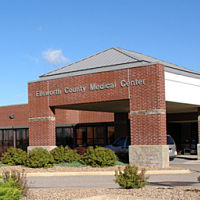
 |
|

|
Coronaviruses are a large family of viruses that can infect people and many animals, including camels, cattle, cats, and bats. There are many types of coronaviruses, including some that give people a common head or chest cold. Other coronavirus diseases like severe acute respiratory syndrome (SARS) and Middle East respiratory syndrome (MERS) are extremely dangerous but are much less widespread than colds and COVID-19. What we know about the Coronavirus 2019 Novel Coronavirus (2019-nCoV) is a virus (more specifically, a coronavirus) identified as the cause of an outbreak of respiratory illness first detected in Wuhan, China. Early on, many of the patients in the outbreak in Wuhan, China reportedly had some link to a large seafood and animal market, suggesting animal-to-person spread. However, a growing number of patients reportedly have not had exposure to animal markets, indicating person-to-person spread is occurring. Symptoms -Fever or chills -Cough -Shortness of breath or difficulty breathing -Fatigue -Muscle or body aches -Headache -New loss of taste or smell -Sore throat -Congestion or runny nose -Nausea or vomiting -Diarrhea  **This list does not include all possible symptoms. **This list does not include all possible symptoms. Prevention Get vaccinated Get vaccinated as soon as you can. Remember that you are not considered fully vaccinated until 2 weeks after your final shot. This is the best way to prevent the spread of COVID-19. Wear a facemask If you are not fully vaccinated and older than the age of 2, a mask should be worn in all indoor public settings. **When in areas of substantial or high transmission; masking even if fully vaccinated is recommended to add an additional layer of protection. Outdoor settings generally are considered safe, unless it is a crowded venue. Wearing a mask over your nose and mouth is required on planes, buses, trains, and other forms of public transportation traveling into, within, or out of the United States and while indoors at U.S. transportation hubs such as airports and stations. Stay 6ft apart from others This is especially important as some individuals can be infected without showing any symptoms. Avoid crowds and poorly ventilated areas. Wash your hands Wash your hands often and thoroughly with soap and water for at least 20 seconds, especially after you have been in a public place, or after blowing your nose, coughing, or sneezing. You can use an alcohol-based hand sanitizer with at least 60% alcohol if soap and water are not available. Avoid touching your eyes, nose, and mouth with unwashed hands. Cover your coughs and sneezes Cover your mouth and nose with a tissue when you cough or sneeze, or you can cough or sneeze into your sleeve. Throw used tissues in a lined trash can, and immediately wash your hands with soap and water for at least 20 seconds.  If you are wearing a mask, change your mask as soon as possible and wash your hands. If you are wearing a mask, change your mask as soon as possible and wash your hands.Clean and disinfect Disinfect highly touched objects and high touch surfaces daily. If you or someone in your household is ill, suspected, or a confirmed positive, disinfect these objects and areas more frequently. If surfaces are visibly dirty, wash them with soap and water prior to disinfection. Monitor your health daily Be alert for symptoms and stay home if you begin showing any signs of COVID-19. Check your temperature regularly should you develop any symptoms. Test if you suspect you may have COVID-19. CDC information on the Coronavirus: www.cdc.gov |
|
|||||||||||||||||||
| Ellsworth County Medical Center | 604 Aylward Avenue, Ellsworth, KS 67439 | (785) 472-3111 | |||||||||||||||||||||
| ©2026 FastHealth Corporation Terms Privacy | US Patent Numbers 7,720,998 B2, 7,836,207 |